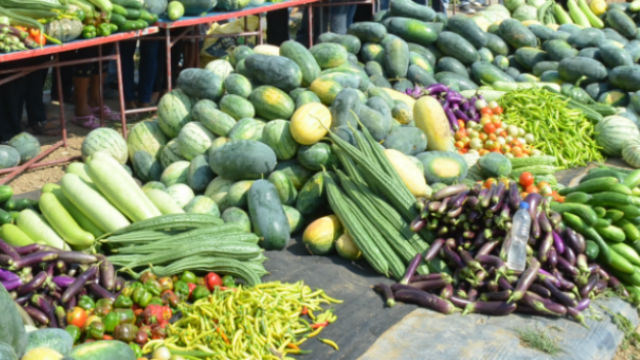The Cordillera office of the National Nutrition Council (NNC-CAR) said that Filipinos tend to misallocate food spending since more is spent on starchy staples than protein such as meat, fish and nuts, and consume more than the dietary recommendation.
NNC-CAR regional nutrition program coordinator Bella Basalong claimed that people under spend on vegetables, fruits, milk, and meat aside from the fact that they cannot afford the cost of nutritious diet.
The NNC-CAR official pointed out that global food prices had increased due to the COVId-19 pandemic, bad weather and rise in cost of fuel and fertilizers.
She disclosed that overall, food inflation in the country reached 10 percent last year that made food unaffordable to the poor families.
According to her, Filipinos pay 40 percent higher for food compared to countries in the Asia-Pacific region because of continued focus on supporting rice production at the cost of other agricultural products.
On the other hand, she claimed that high levels of trade protection for nutrient-rich food increases cost of production compared to cheaper imports.
Basalong advocated for the adoption of sustainable healthy diet among the people where there should be the inclusion of plant-based foods in their daily consumption and the subsequent decrease in the consumption of red meat, sugar and refined grains to nurture health and support environmental sustainability to reduce production of greenhouse gasses that contributes to the global climate change problem.
She said that Filipinos are not consuming healthy diet where 2 percent or 5.3 million individuals are severely food insecure, 33.4 percent or 42 million people are moderately food insecure, 60 percent of infants under 6 months are exclusively breastfeeding, 13.3 percent of children 6-23 months meet the minimum acceptable diet and 9 out of 10 Filipinos do not meet their energy requirements.
Moreover, 68.6 percent or about 75.2 million Filipinos cannot afford a healthy diet in 2020 where the cost of a healthy diet in the said year was P243.50 per person per day. A household of 5 members needed P1,212 per day to consume healthy meals in a day.
Earlier, the Philippine Statistics Authority (PSA) estimated that a family of 5 needs around P400 per day to meet their basic food and non-food needs.
Basalong underscored that not consuming healthy diet results to increased risk of obesity, heart disease, diabetes, cancer; stress, tiredness, reduced capacity to work; undernutrition, including stunting, and wasting; micronutrient deficiencies or excess; increased risk of dying and disability or adjusted life years; violation of the human rights to adequate food and not meeting Sustainable Development Goals (SDGs), particularly Goal 2 on ending hunger and all forms of malnutrition.
Among the recommended actions for sustainable diet include addressing inequities and consider the perspective of people who experience poverty and deprivation; promote capacity development strategies for behavior change, including consumer empowerment and effective food and nutrition education; quantify and balance the potential trade off to make sustainable healthy diet available, accessible, affordable, safe and appealing for all and develop national food-based dietary guidelines that define context specific sustainable health diets by considering the social, cultural, economic, ecological and environmental circumstances.
Basalong advised people to adopt the practical ways to consume healthier diets such as the creation of meal plans referring to the Pinggang Pinoy; cooking meals at home instead of eating outside the home; incorporating fruits, vegetables, legumes and nuts in daily meals; choosing green leafy vegetables that are relatively inexpensive and rich in protein; avoiding buying highly processed foods and instead buy whole foods; replacing meat with other proteins such as legumes, eggs, small fishes and canned fish and grow own foods at home or in communities.














